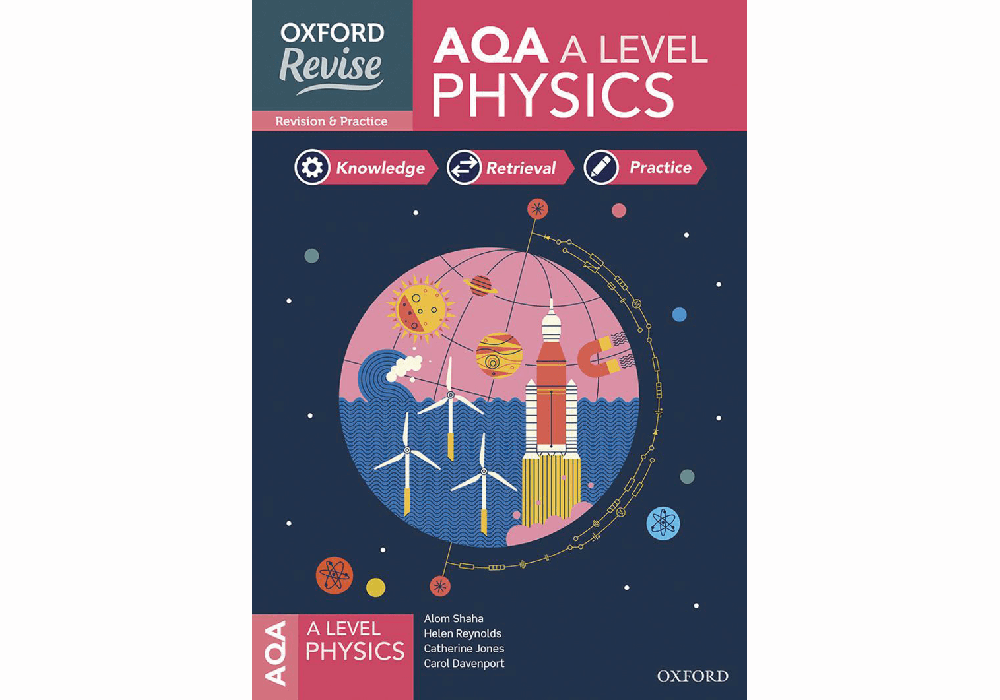At a glance
• A science revision series based on the principles of cognitive science
• 3 AQA Revision Guides: Biology, Chemistry and Physics
• 3 OCR Revision Guides: Biology A, Chemistry A and Physics A
• Easy to use Knowledge Organisers
• Retrieval questions for improving long-term retention
• Extensive exam-style question practice with hints and tips for revision and exams
If students want to study effectively in order to master knowledge and skills then we have to plug them into what works.
This is where the Oxford Revise comes in as their approach is based on the science of learning and the three underappreciated but simple steps of Knowledge, Retrieval and Practice.

Although basic cognitive research is being applied in the classroom, by many teachers, it has mutated and is also being misapplied.
This is why Oxford Revise is super-addictive, as you know that what your students are getting will help them maximise their learning efficiency.
The books all share the same essential infrastructure in terms of layout, design and approach and the production values are top-notch.
They start by helping students understand the principles of successful revision, what strategies will be used and how these mesh together.
There is little doubt that students will quickly make the ‘Knowledge, Retrieval and Practice’ process part of their revision narrative and appreciate the connections and synoptic links.
The contents of each book are expert-driven and deadly in their detail. They are also presented with real care and attention to usability, so they aren’t stuffy or dry but vibrant, exciting and inviting.
The Knowledge sections of each chapter begin with knowledge organisers which clearly present key information in an easy to understand format connecting concepts and helping students see how things fit.
The Retrieval pages use short questions to test knowledge recall. The idea is that students read the question and corresponding answer and then cover up the answers to test themselves.
Also included are Skills boxes which cover knowledge and understanding from a required practical or a key maths skill. These are presented as a worked example with further practice questions.
What you get from these high-quality books is plenty of SLOP – sheds loads of practice – and that’s important for being able to focus on the interesting and more in-depth concepts and topics.
All the practice pages in the books follow an exam-style approach and cover every eventuality including practical skills, maths skills and data analysis and evaluation competencies.
There are exam tips peppered throughout the books that point students in the right direction and get them thinking like learning professionals.
At the end of the books you will find required practicals and synoptic links, multiple-choice questions, data booklet and periodic table.
Free online copies of the books are also available and how to access these can be found inside each title.
Everything about these books seems to flow. They are geared up for success and they are carefully calibrated for purposeful revision practice that reach the brain other revision guides just don’t.
Oxford Revise is a quality, affordable and cognitively classy series that takes revision to a whole new level of understanding. They are masterful in their execution and integrate study techniques that accelerate learning.
Verdict
• Bridges the gap between research and practice in science teaching and revision
• Takes the stress out of studying by building learning that sticks
• Helps students segment, sequence and conquer
• Promotes deep learning, creates learning events and meaning making
• Ideal for keeping knowledge fresh and for pushing into long-term memory
• Breeds success and supercharges motivation
Upgrade if…
You are looking for a series of revision books that will help students become learning scientists and clued-up science learners.
Cost: £20 per title.
For further information visit oxfordsecondary.com/oxfordrevise
Reviewed by John Dabell










